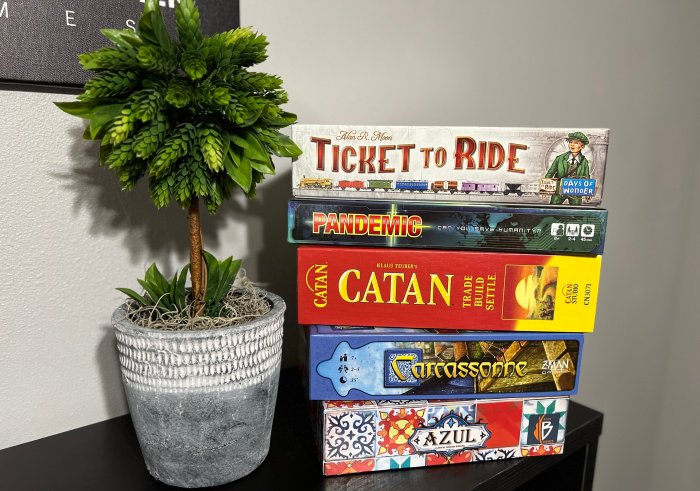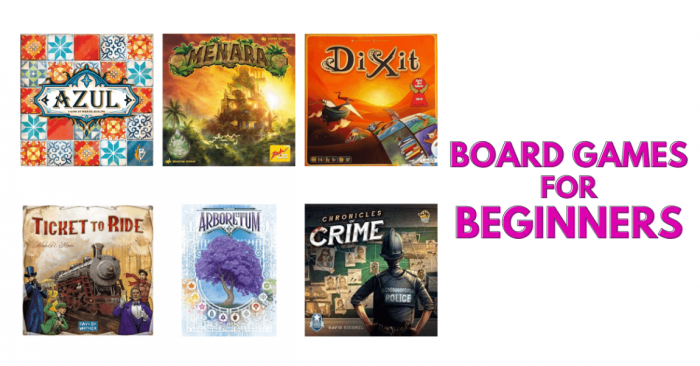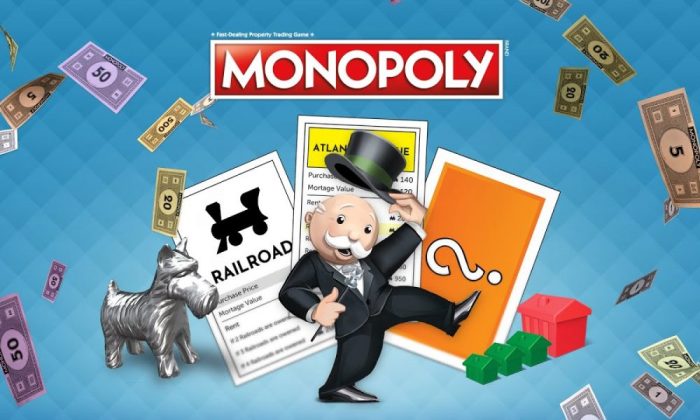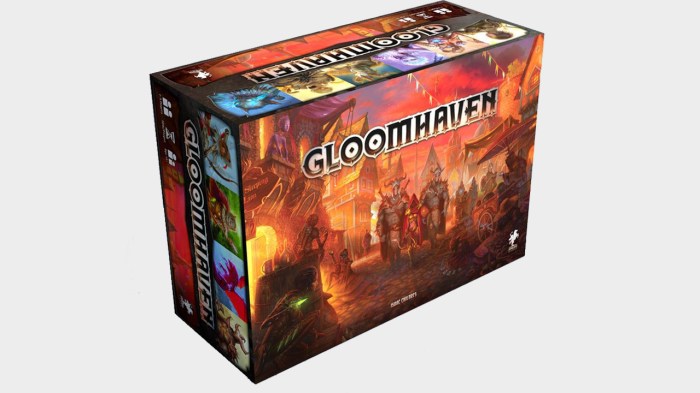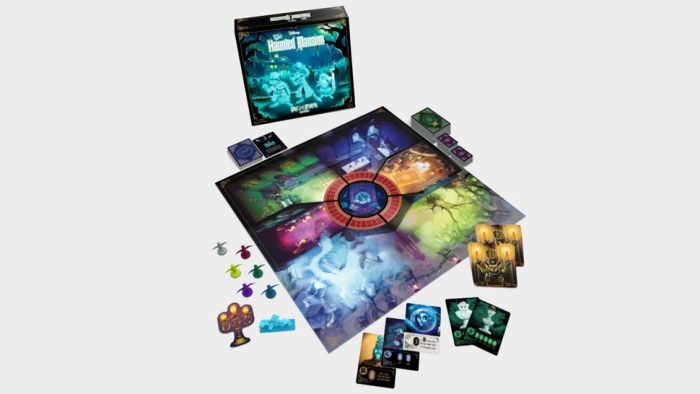
Gather ‘round the table, folks! It’s time to unleash the fun with board games that’ll have everyone laughing, strategizing, and perhaps even plotting revenge! Fun board games are not just a way to pass the time; they’re gateways to epic rivalries and unforgettable family memories. From whimsical themes to card-slinging antics, these games promise an experience that’s anything but ordinary.
In this thrilling exploration of fun board games, we’ll dive into the best crowd-pleasers for family gatherings, discover engaging card games that bridge the age gap, and unravel the enchanting world of thematic board games that whisk players away on imaginative adventures. So, buckle up for a rollercoaster of strategy, laughter, and maybe a few playful betrayals!
Popular Fun Board Games
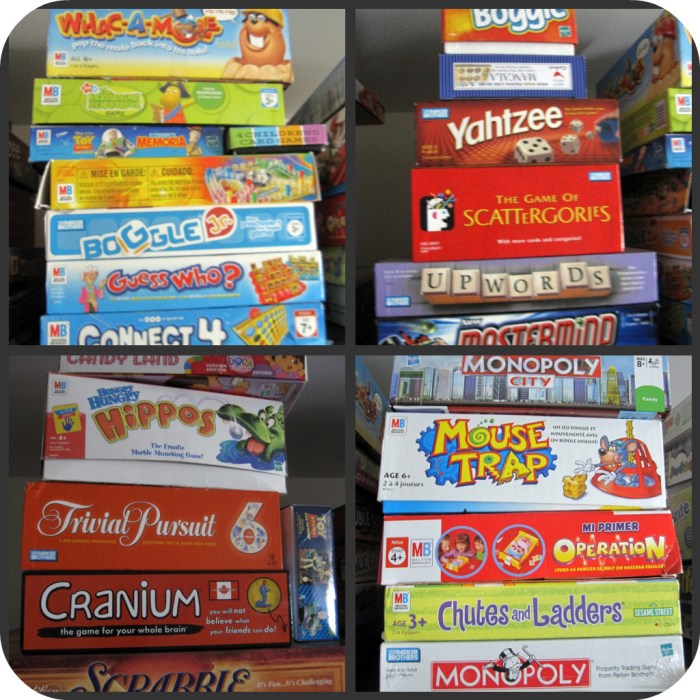
Gather around the table, and let the good times roll! Board games have a magical way of bringing families together, igniting laughter, and maybe a little friendly rivalry. If you’re looking to spice up your family gatherings, check out these top 10 fun board games that are sure to keep everyone entertained. With a mix of strategy, luck, and a dash of humor, these games promise to make your next game night a resounding success.
Top 10 Fun Board Games for Family Gatherings
To dive deeper into the world of tabletop fun, here’s a list of board games that cater to families of all shapes and sizes. Each offers unique gameplay mechanics and objectives, ensuring there’s something for everyone. Prepare your dice, cards, and game pieces as we embark on this board game journey!
- Catan
-Players collect resources and build settlements on a fictional island. The objective is to be the first to reach 10 victory points through settlement construction and strategic trading. Personal anecdote: After a heated game where I lost by a single point, I vowed to never trust Uncle Bob with a trade again. He gave me “two wheat for one sheep,” which was the equivalent of a consolation prize for the trauma I endured! - Ticket to Ride
-Compete to build train routes across North America, connecting cities and completing destination tickets. The player with the longest continuous route and the most completed tickets wins. Fun fact: The game can become a battle of wits between siblings, especially when someone steals the very route you needed to complete your plan. You’d think we were fighting over inheritance! - Monopoly
-A classic real estate trading game where players buy, sell, and trade properties to bankrupt their opponents. The first player to do so wins the game. However, beware! The only thing more dangerous than Baltic Avenue is the potential for family feuds. I once got grounded for monopolizing the entire board while my little sister cried, claiming, “It’s not fair!” - Scrabble
-Players create words on a game board using letter tiles, scoring points based on the length and complexity of the words formed. The one with the highest score at the end is crowned the word wizard. I still remember the time my dad played “quizzify,” and we all stared in awe, half impressed and half confused. My mom just rolled her eyes and asked if “quizzify” was even a real word! - Clue
-A murder mystery game where players gather clues to deduce who the murderer is, in which room, and with what weapon. The first to solve the mystery wins. This game always brings out my inner detective. Let’s just say I once blamed it on the butler, only to find out he was just really bad at serving tea! - Apples to Apples
-A party game where players match noun cards to adjective cards, leading to hilarious combinations. The judge picks the funniest combination, and the one who gets picked earns a point. This game is a riot, especially when Grandma’s “sassy” adjectives come into play. I’ll never forget when she described “sandwiches” as “spicy” – we’re still debating that one! - Risk
-A strategic game of global domination where players control armies, conquer territories, and aim to fulfill secret missions. The player with the last standing army wins. Prepare for intense moments! I once lost to my cousin, and he didn’t let me live it down for a whole year. I mean, who knew conquering South America could lead to such drama? - Guess Who?
-A two-player guessing game where players ask yes or no questions to deduce the identity of their opponent’s character. The first to guess correctly wins. Every family gathering ends up with a fierce showdown between my siblings and me, filled with suspicious glares and accusatory finger-pointing, especially when someone picks “that dude with the glasses.” - Jenga
-A physical skill game where players take turns removing blocks from a tower and balancing them on top without causing the tower to collapse. The last person to successfully remove a block without toppling the tower wins. Let’s just say my mom’s nail-biting tension during the game could rival a horror movie’s climax, especially when my toddler cousin was at the helm! - 7 Wonders
-A card drafting game where players build civilizations and develop their resources to earn points. The player with the most victory points at the end wins. It’s a game of strategy and cunning, and trust me, watching my uncle trying to explain the rules was like watching a toddler do a puzzle. Hilarity ensued, and only half of us knew what we were getting into!
Engaging Card Games
Card games have a unique charm, bringing together people of all ages and skill levels under one roof (or table, if you prefer). They provide not just entertainment but also a vehicle for social bonding and endless laughter. Whether you’re an aspiring card shark or a casual player who just enjoys the thrill of a good game, there’s always something delightful about shuffling a deck and diving into a round of cards with friends and family.Engaging in card games offers a plethora of options that cater to different tastes and age groups.
The brilliance of card games lies in their ability to blend strategy, chance, and social interaction, making them perfect for gatherings or cozy nights at home. Below are some captivating card games suitable for various age groups alongside their winning strategies.
List of Engaging Card Games
Here’s a lineup of popular card games that can liven up your game night, spanning across ages and skill levels:
- Uno: A classic for family gatherings, perfect for kids and adults alike. The strategy lies in knowing when to hold onto those wild cards and playing them at just the right moment to unleash chaos.
- Spades: A trick-taking game that demands teamwork. Winning involves good communication with your partner and the occasional bluff to keep your opponents guessing.
- Cards Against Humanity: A party game for adults that’s all about wit and humor. The key to winning is simply to be as creatively outrageous as possible—light-heartedness is your secret weapon.
- Go Fish: Ideal for younger players. The winning strategy? Keep a poker face and try to remember which cards your opponents are asking for—it’s all about memory and stealth!
- Magic: The Gathering: A complex strategy card game for those who enjoy depth. Winning requires deck-building expertise and successfully anticipating your opponent’s moves.
Card games serve as a fantastic platform for social interaction, engaging players in friendly banter and strategy discussions. They offer an excellent opportunity to improve communication skills as players learn to read each other’s cues, express their thoughts, and negotiate their strategies. The laughter and camaraderie fostered during these games can break the ice and create stronger bonds among participants.
“In the world of card games, every shuffle is a fresh start, every play a new chapter, and every laugh a memory in the making.”
Thematic Board Games
Thematic board games transport players into a world beyond their living rooms, blending strategy with storytelling to create an immersive experience that often feels like a blockbuster movie. These games are not just about rolling dice and moving pieces; they are about becoming part of a narrative that captures imaginations, evokes emotions, and sometimes inspires a healthy dose of competitiveness.
With themes ranging from magical lands to dystopian futures, thematic games can turn even the dullest Tuesday night into an epic adventure.Themes in board games serve as the backbone of the narrative, enhancing gameplay and player engagement through rich storylines and captivating settings. Engaging with various themes allows players to step into roles, influencing decisions and strategies based on the storyline’s context.
This thematic integration often results in deeper immersion and investment, as players feel their actions have lasting consequences within the game world.
Themes and Storylines in Board Games
The impact of themes and storylines in board games is profound, as they not only influence player dynamics but also create memorable experiences. Here are some essential themes that have made waves in the board gaming community:
- Fantasy: Games like Dungeons & Dragons and Gloomhaven invite players into magical realms filled with dragons, wizards, and quests that require teamwork and strategy.
- Sci-Fi: Titles such as Terraforming Mars and Eclipse explore futuristic worlds where players colonize planets and engage in interstellar diplomacy, often leaving players pondering the fate of humanity.
- Horror: Games like Betrayal at House on the Hill immerse players in spine-chilling narratives where survival is the only goal against lurking threats and supernatural mysteries.
- Historical: Titles like 7 Wonders and Ticket to Ride recreate pivotal moments in history, allowing players to experience different eras while learning about the past.
- Adventure: Games such as Pandemic and Forbidden Island revolve around adventures that require cooperation and strategic planning to overcome challenges and save the day.
Incorporating these themes creates an engaging atmosphere where players are drawn into the story, often requiring them to strategize based on narrative context. This emotional investment is what keeps players coming back for more.Additionally, let’s dive into a creative concept for a new thematic board game, bound to tickle your fancy. Imagine a board game titled “Chrono Clash: Time Travelers’ Tournament,” where players are interdimensional adventurers competing across various historical epochs.
“In Chrono Clash, the past, present, and future collide in a race against time!”
Players would choose characters such as:
- The Time Wizard, who can manipulate timelines to reverse or fast-forward events.
- The Steampunk Inventor, who creates gadgets to overcome obstacles in a Victorian-era setting.
- The Cyberpunk Hacker, who uses technology to disrupt opponents in a dystopian future.
- The Ancient Warrior, representing a bygone era and wielding legendary weapons to challenge foes.
Gameplay would involve navigating a modular game board representing various time periods. Players embark on quests related to the theme of each era, collecting artifacts and overcoming challenges that require teamwork and cunning strategy. The winner is the one who gathers the most artifacts while strategically thwarting opponents, proving that time travel isn’t just about going back—it’s about who gets there first!With vivid storytelling and dynamic interactions, “Chrono Clash: Time Travelers’ Tournament” promises to be a whimsical journey through time, filled with laughter, rivalry, and a sprinkle of chaos.
Players will not only compete but also share tales of their time-warped adventures long after the game ends.
Wrap-Up

As we wrap up this delightful journey through the realm of fun board games, remember: whether you’re rolling dice, shuffling cards, or crafting epic tales, the true magic lies in the laughter and memories shared with those around you. So, grab your game pieces, invite your friends or family, and let the good times roll. Because in the world of board games, every turn is a chance for a new adventure!
Expert Answers
What age groups are board games suitable for?
Board games can cater to all ages, with options available for toddlers, teens, and adults alike!
How long do typical board games take to play?
Game durations vary widely, ranging from quick 15-minute rounds to epic saga sessions that can last hours!
Are there board games that require strategy?
Absolutely! Many board games involve deep strategy and critical thinking, keeping your brain on its toes!
Can board games help improve social skills?
Yes! Playing board games encourages communication, teamwork, and even a bit of healthy competition.
What makes thematic board games unique?
Thematic board games immerse players in captivating worlds, complete with rich narratives and engaging characters!
